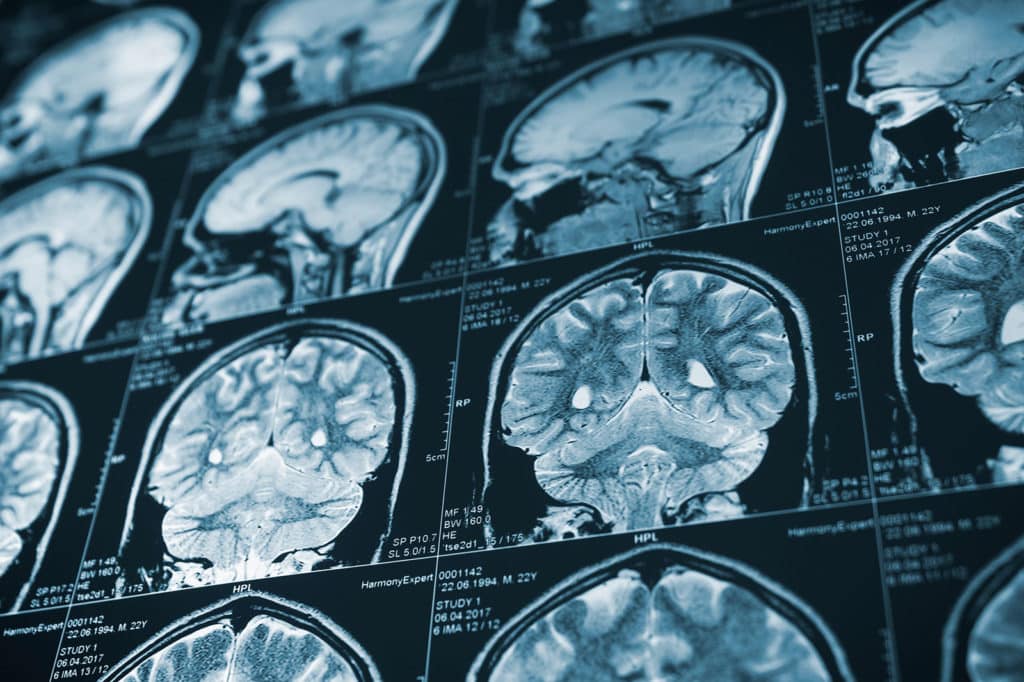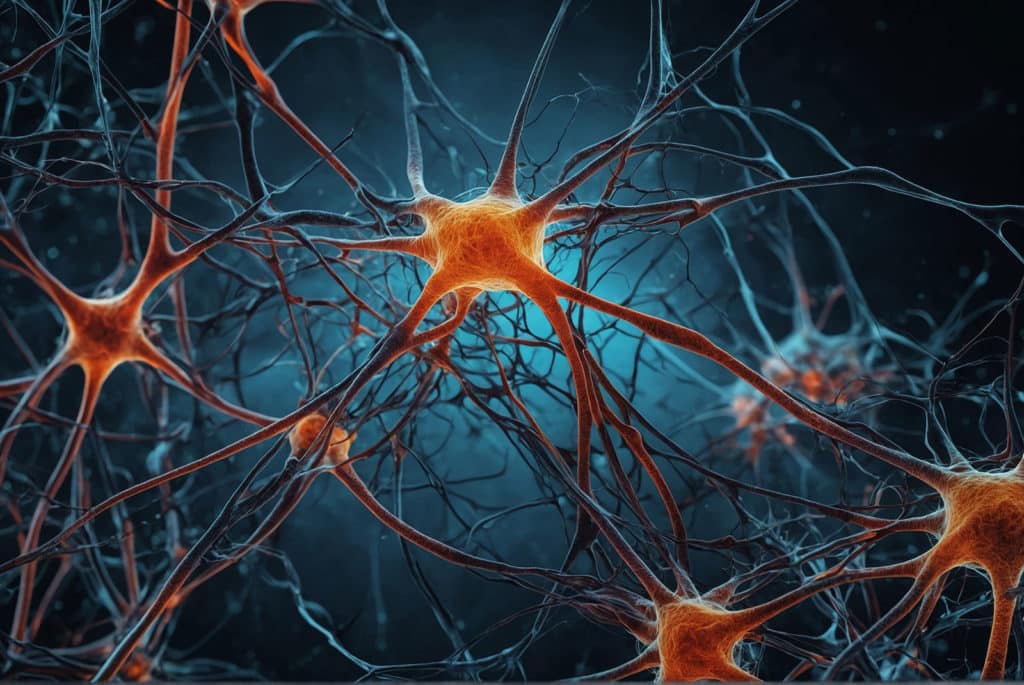Most of us have been taught the dangers of alcohol. It can weaken the immune system, damage vital organs like the liver, stomach, and heart, and increase the risk of life-threatening cancers.
Yet even with that knowledge, many continue to drink to the point of developing an addiction. This begs the question, how does alcohol affect the brain and central nervous system, and what changes contribute to its dependence? Let’s discuss.
Table of Contents
How Does Alcohol Affect the Brain?
Alcohol is a CNC (Central Nervous System) depressant, falling under the same category as benzodiazepines, barbiturates, and muscle relaxants.

Like most CSC depressants, it boosts the effects of gamma-aminobutyric acid (GABA), a neurotransmitter with anti-seizure and anti-anxiety effects.
In moderate amounts, alcohol’s effects on GABA activity are generally mild. It can cause decreased coordination, slurred speech, and slow reaction times—all of which typically fade as alcohol leaves the system.
In higher doses, however, it can cause severe impairments in judgment, memory, and motor skills, significantly increasing the risk of accidents and injury. Long-term excessive use can also lead to serious neurological and cognitive disorders, including:
Structural and Functional Changes
A 2003 study found that alcohol can shrink the brain when consumed in large amounts over extended periods.
The MRI scans performed revealed that people who drank four or more alcoholic drinks per day exhibited a noticeable amount of shrinkage in the hippocampus, the brain area associated with memory and reasoning.
A separate 2022 study has also shown that alcohol reduces the volume of both gray and white matter in the brain, leading to cognitive decline and an increased risk of neurodegenerative diseases like:
- Alzheimer’s disease
- Parkinson’s disease
- Alcohol-Related Dementia
- Multiple System Atrophy (MSA)
- Peripheral Neuropathy
Shrinkage happens because alcohol is toxic to brain cells, killing them or making them work poorly. Alcohol also reduces the brain’s ability to repair itself and can cause inflammation, which harms brain tissue.
Neurotoxicity
Chronic alcohol consumption disrupts the balance of neurotransmitters, leading to an event called excitotoxicity.
Excitotoxicity refers to the damage and death of brain cells. It occurs when glutamate, a chemical that helps send signals to the brain, becomes overactive.
When alcohol is suddenly removed (such as during withdrawal), the brain, which has adapted to alcohol’s depressant effects, becomes hyperactive. The brain is left with too much glutamate and too little GABA, throwing off the balance in the brain. This imbalance can lead to excitotoxicity.
Excitotoxicity can cause memory loss, poor decision-making, and a higher risk of brain diseases like Alzheimer’s. It also plays a big role in alcohol withdrawal symptoms, such as seizures, anxiety, and confusion.

Cerebellum Damage
The cerebellum is the part of the brain that controls balance and coordination. Alcohol acts as a neurotoxin, disrupting its function and leading to impaired motor control, unsteady movements, and poor coordination.
A person struggling with alcohol addiction may develop a condition known as alcoholic cerebellar degeneration, which often leads to symptoms like unsteady walking, difficulty with fine motor skills (such as writing or buttoning a shirt), and a wide, staggering gait that resembles a drunk walk, even when sober.
Furthermore, this condition causes patients to struggle with tasks that require precise timing or coordination, like pouring water into a glass or catching a ball. Unfortunately, alcohol-induced cerebellum damage is often irreversible, even when the drinking stops.
Pellagra
Pellagra is a disease caused by a deficiency of vitamin B3, also known as niacin. In severe cases, pellagra can result in death.
Alongside food scarcity, pellagra is often associated with alcohol addiction because it inhibits the absorption of vital nutrients including vitamin B1 (thiamin), Vitamin B12 (niacin), folic acid, and zinc.
Alcohol damages the stomach and intestines, making it harder for the body to absorb vitamins and minerals. It also affects the liver, which is needed to process nutrients, and increases the need to urinate, further causing the body to lose important nutrients.
Over time, pellagra can result in the three Ds: diarrhea, dermatitis, and dementia. Vitamin B12 plays a big role in brain functions, and the lack of it can result in slower processing speeds and brain lesions.
Wernicke-Korsakoff Syndrome
Like pellagra, Wernicke-Korsakoff Syndrome is caused by a severe vitamin deficiency—in this case, a lack of vitamin B1 (thiamine). Since alcohol interferes with thiamine absorption, storage, and use in the body, chronic drinkers are at high risk of developing this condition.
WKS has two stages: Wernicke’s encephalopathy, which is the acute phase, and Korsakoff’s syndrome, the chronic phase.
Wernicke’s encephalopathy is a medical emergency and includes symptoms such as confusion, lack of muscle coordination (ataxia), and eye movement problems. If left untreated, it can progress to Korsakoff’s syndrome, which causes severe memory loss, difficulty forming new memories, and hallucinations.
Wernicke-Korsakoff Syndrome is chronic, meaning that it’s irreversible. Early treatment can prevent further brain damage, but if left untreated, it can result in permanent cognitive impairment.
Impaired Thinking and Memory
Long-term use of alcohol damages areas of the brain responsible for memory, like the hippocampus.
Those suffering from alcohol addiction may experience short-term memory loss, blackouts, and/or long-term difficulty with thinking. It affects short-term memory by slowing down how nerves communicate with each other.
Long-term memory loss, meanwhile, occurs due to the death of cells and damage to the hippocampus.

How Does Alcohol Withdrawal Work?
Alcohol withdrawal occurs much like drug withdrawal.
When the body gets used to a certain level of alcohol, it adapts by changing its brain chemistry. Ethanol in alcohol increases the production of GABA, which calms the brain. To compensate for the sudden and unnaturally high production of GABA, the brain increases glutamate to try and keep things active.
The problem arises when alcohol is suddenly removed. The brain gets used to producing high amounts of glutamate and little to no GABA, so when alcohol is no longer there to enhance GABA’s calming effects, the brain becomes overactive. Without enough GABA to slow things down and with too much glutamate stimulating the system, withdrawal symptoms begin.
This overactivity causes a myriad of withdrawal symptoms, including:
- Anxiety
- Tremors
- Rapid heart rate
- Sweating
- Seizures
- Delirium tremens (DTs)
- Irritability
- Nausea or vomiting
- Extreme fatigue
- Sweating
- Loss of appetite
- Difficulty sleeping
- Headaches
Withdrawal symptoms are most common in people who drink heavily. They begin 8 hours after the last drink and intensify over the next 24 to 48 hours. The severity of these symptoms depends on how much a person drinks and how long they’ve been having that amount.
Within 24 hours, the patient may experience auditory, visual, and/or tactile hallucinations. Between 24 to 72 hours, most symptoms may have peaked or begun to level off.
Some symptoms, like headaches, tremors, and insomnia, may stick around for weeks or longer. Seizure risks are at their highest from 24 to 48 hours. If a family member is going through a withdrawal symptom, closely monitor them during this period.

How Is Alcohol Addiction Treated?
Alcohol addiction treatment has three main stages: medical detox, rehabilitation, and long-term maintenance.
Medical Detox
Medical detox is the first step to alcohol addiction treatment. During this stage, alcohol is safely removed from the body while managing symptoms to reduce the effects of alcohol withdrawal. IV fluids, vitamins, and medications such as benzodiazepines (diazepam, lorazepam) are often used to reduce discomfort, anxiety, seizures, and agitation.
Unlike drug addiction, medical detox for alcohol addiction involves a total stop of alcohol rather than tapering (gradual reduction). This is because tapering alcohol is difficult to control outside a hospital setting, and most people entering detox have already stopped drinking or are in crisis.
Rehabilitation
After detox, patients undergo therapy to address the psychological and behavioral aspects of addiction. Common post-detox therapies include family therapy, cognitive-behavioral therapy (CBT), 12-step facilitation therapy, and mutual support grounds like Alcoholics Anonymous (AA) which provide support to those quitting or cutting back on alcohol.
Long-term Maintenance
Addiction is a chronic illness and therefore requires life-long treatment. Recovering patients are encouraged to adopt healthy habits, build a strong support system, and avoid high-risk situations that may tempt them to return to their drinking habits.
According to the National Institutes of Health, up to 70% of patients relapse at some point during their treatment. However, the relapse rates decline the longer a person stays sober.
Final Thoughts
Alcohol addiction affects the brain in various ways. It disrupts neurotransmitter balance, alters brain structure, and impairs cognitive function.
Alcohol damages the prefrontal cortex, which is responsible for decision-making, impulse control, and judgment. This can lead to poor decision-making, increased risk-taking, and difficulty controlling alcohol consumption. It also shrinks the hippocampus, a brain region crucial for memory formation, contributing to memory loss and cognitive decline.
If you or a family member is suffering from alcohol addiction, hope isn’t lost. Research from the CDC shows that 3 out of 4 people—or 75% —recover from alcohol addiction. With a bit of professional help, people struggling with alcohol addiction can regain control of their lives and work toward long-term sobriety. Contact us today to take the first step towards recovery.



